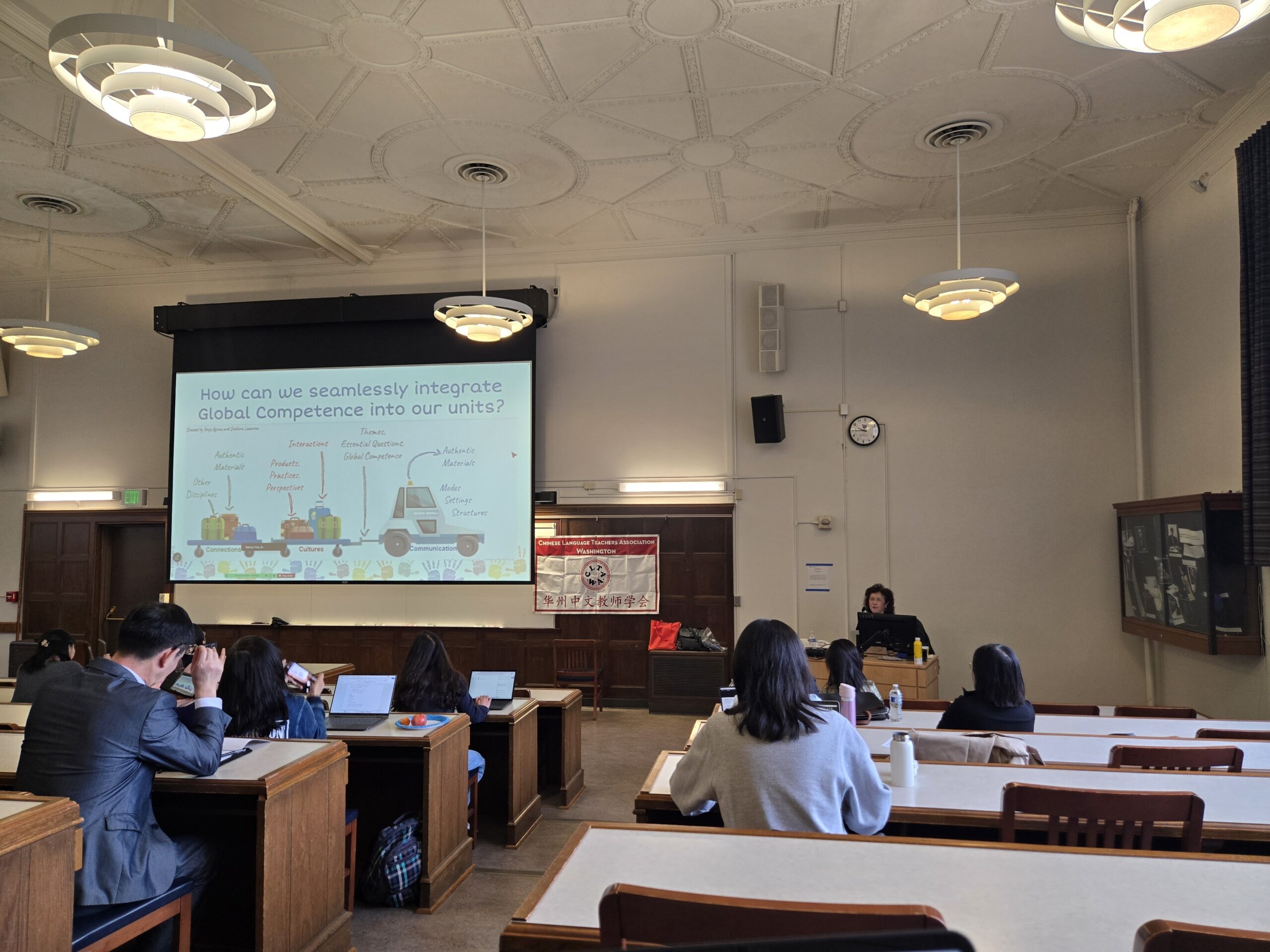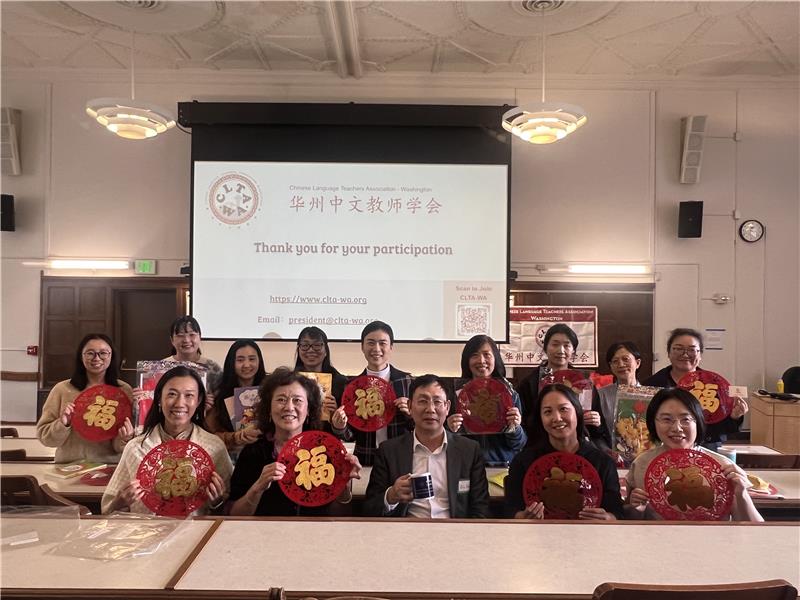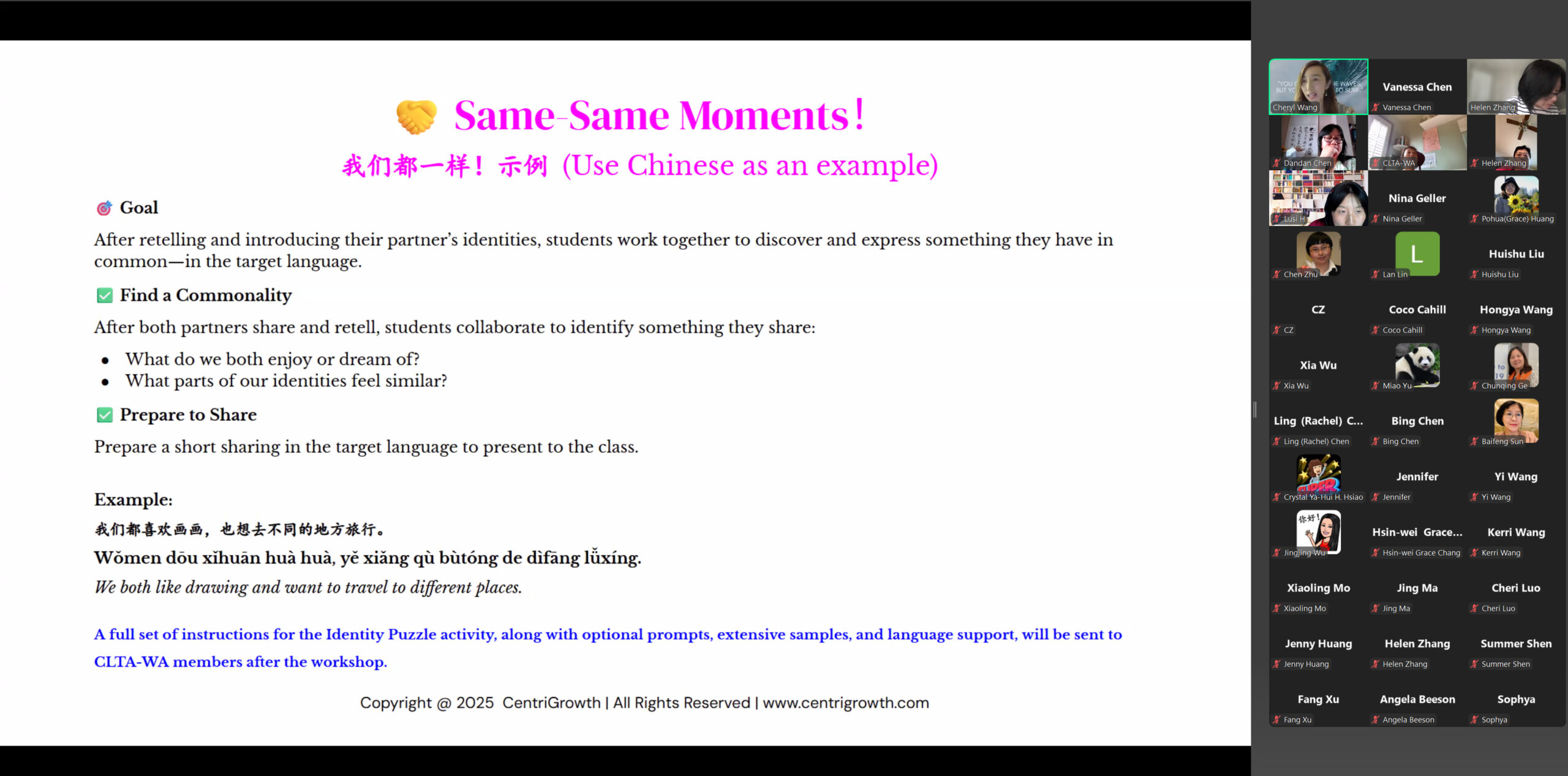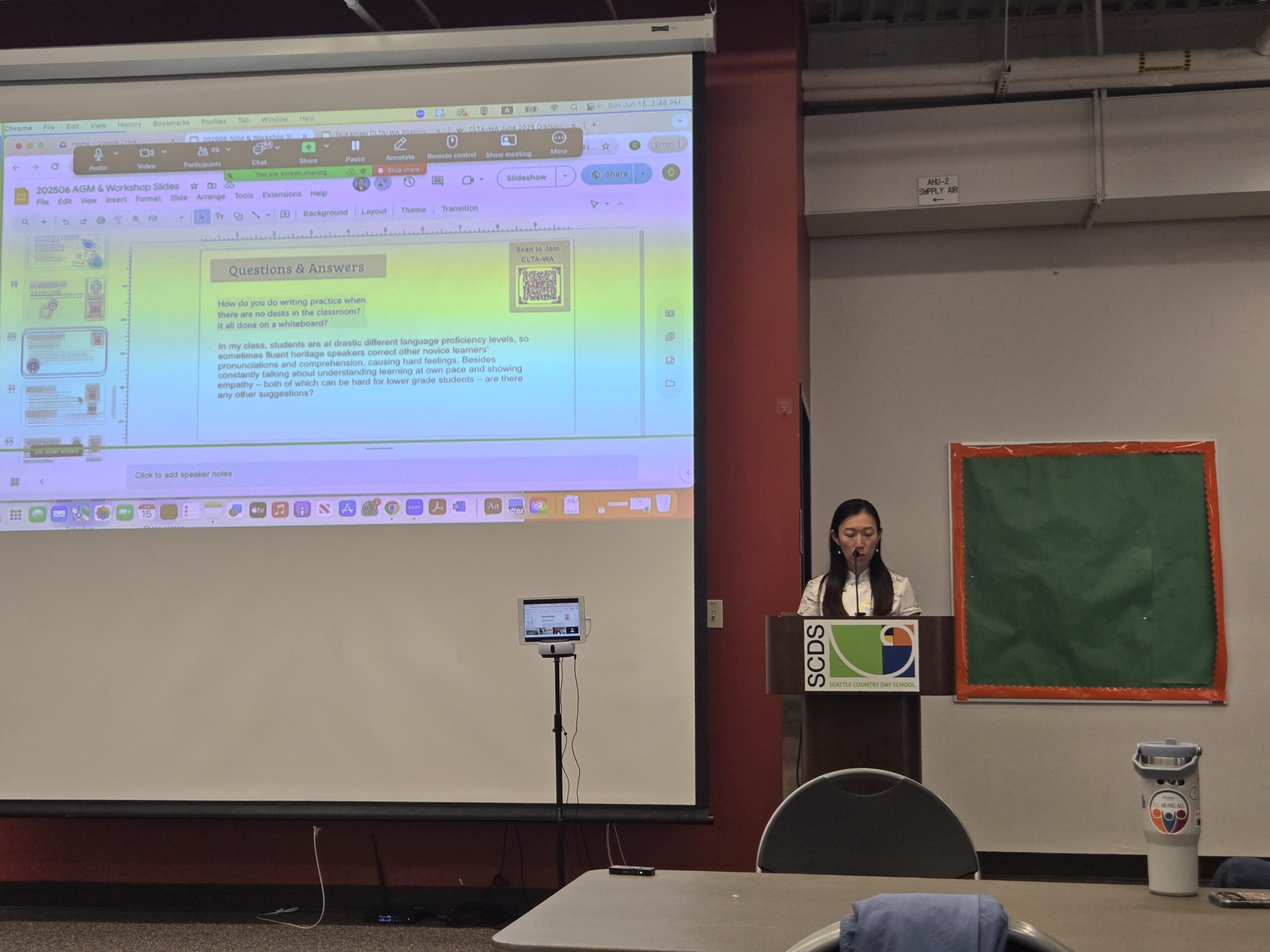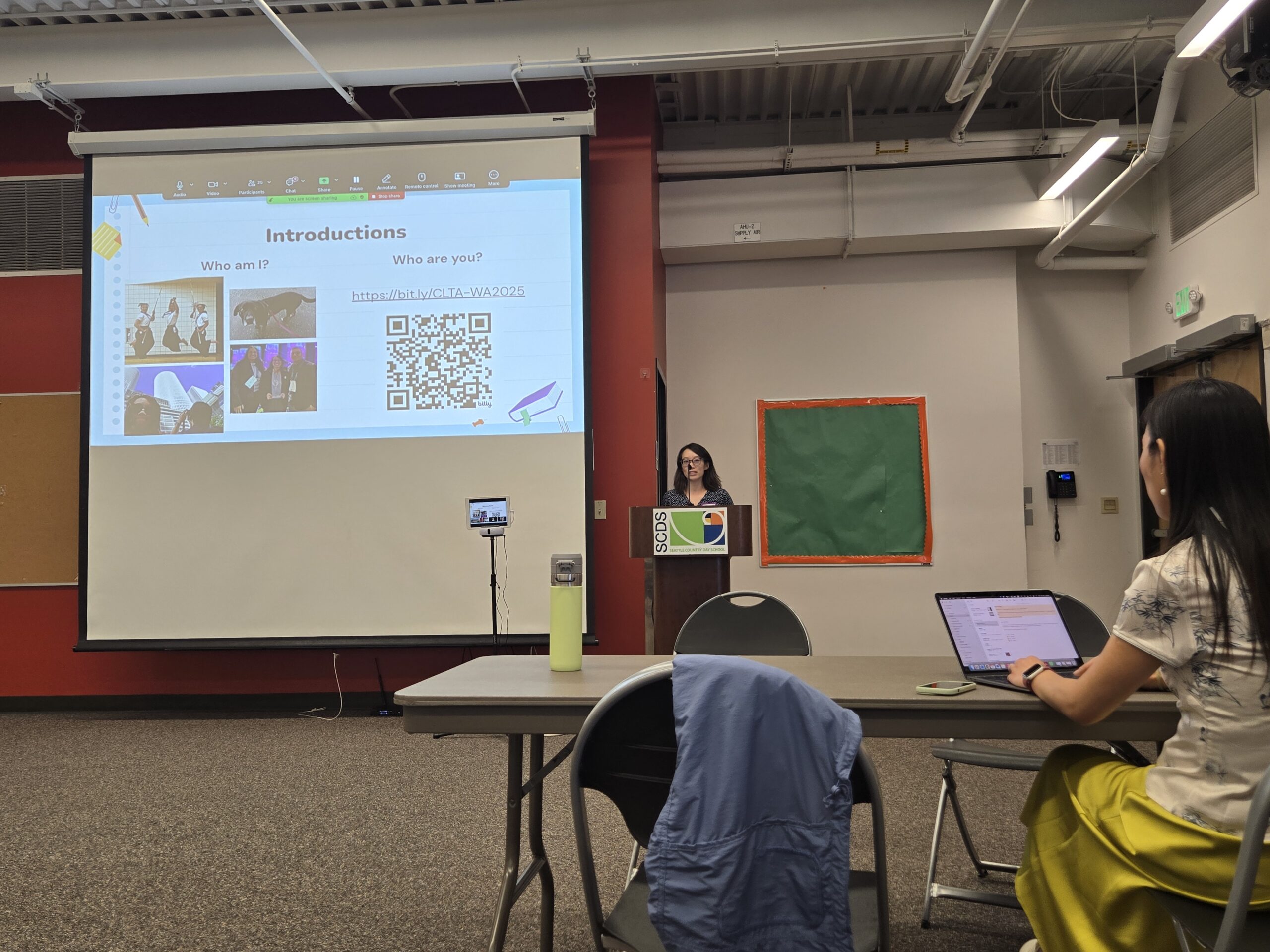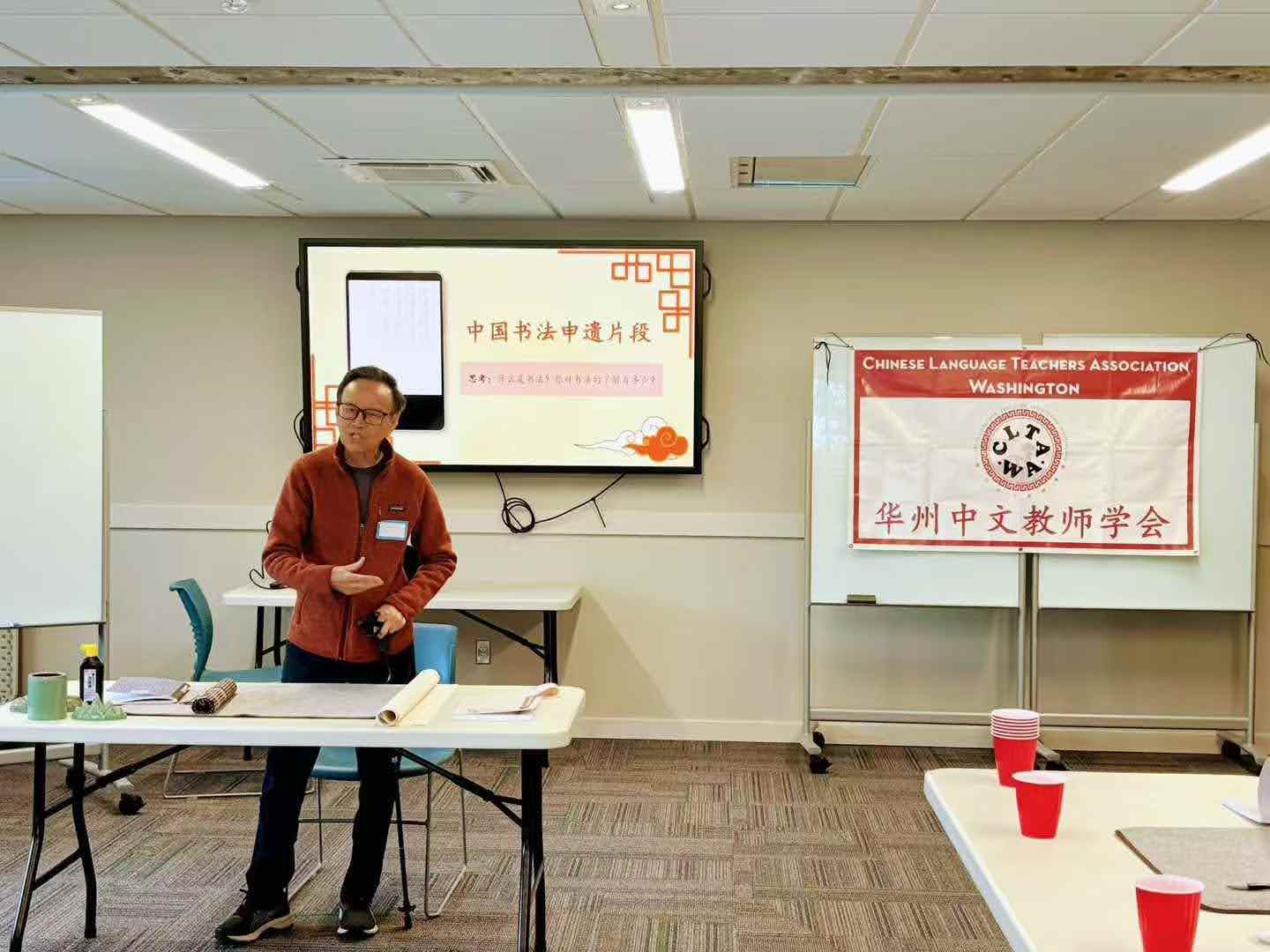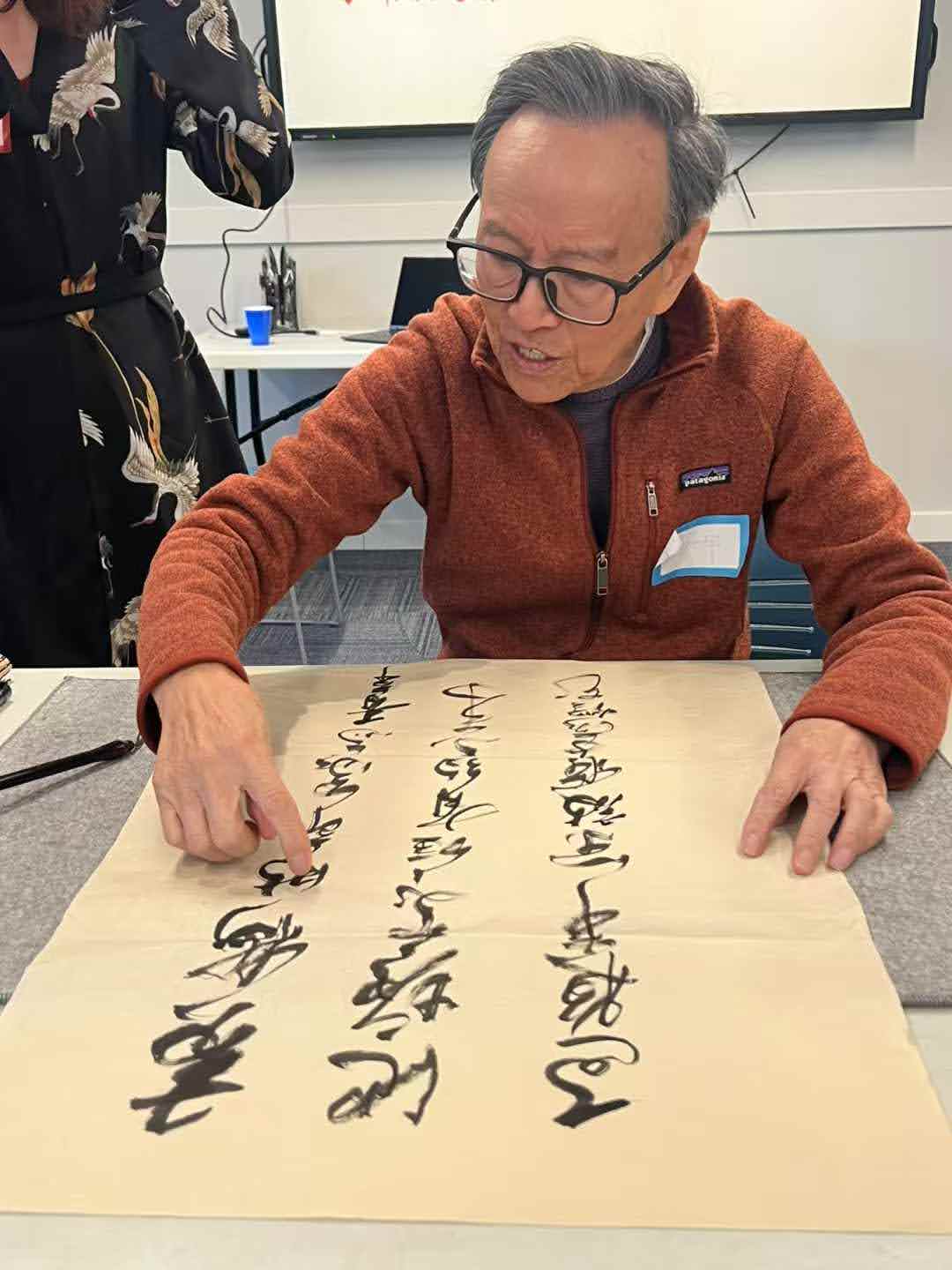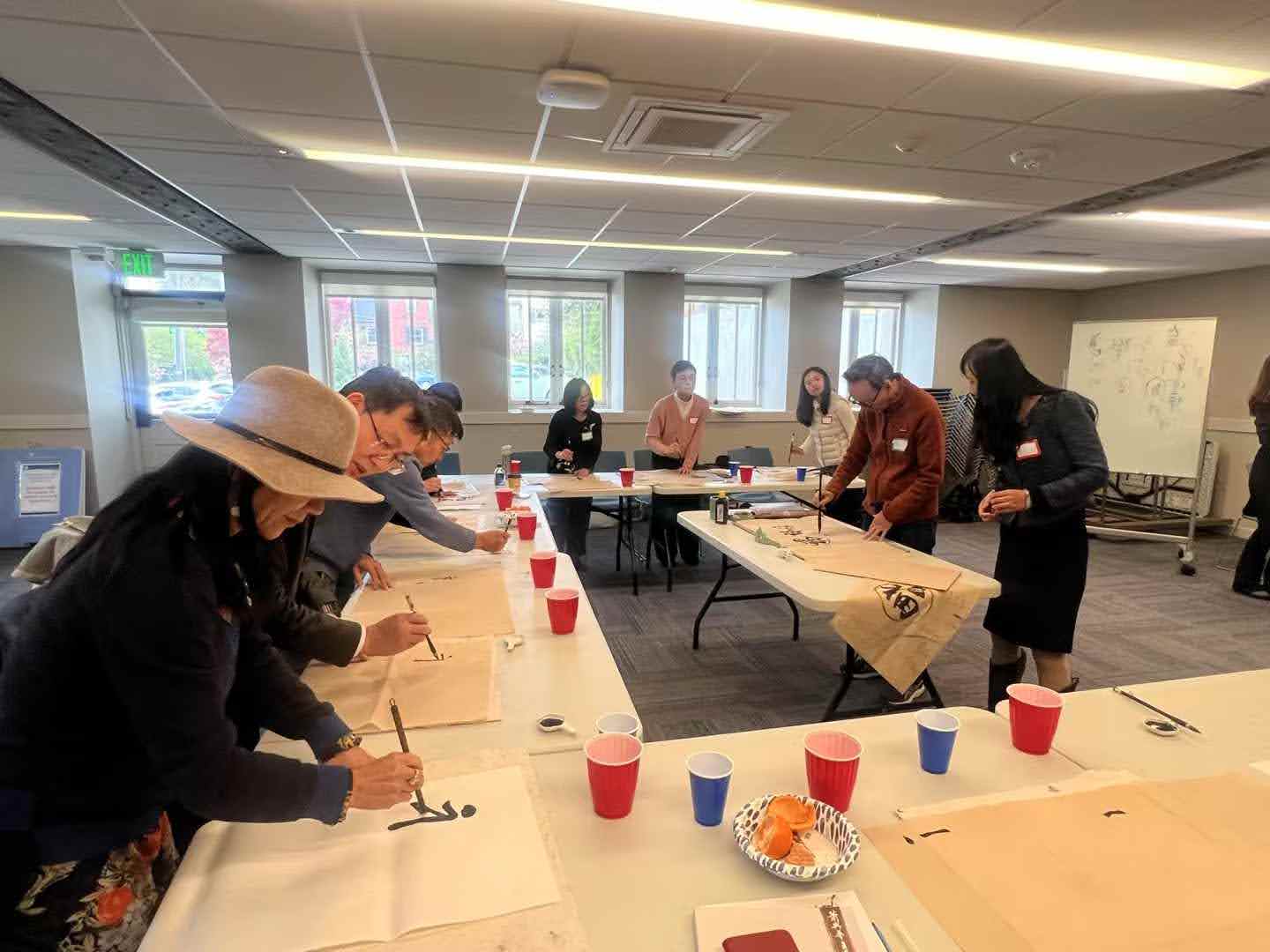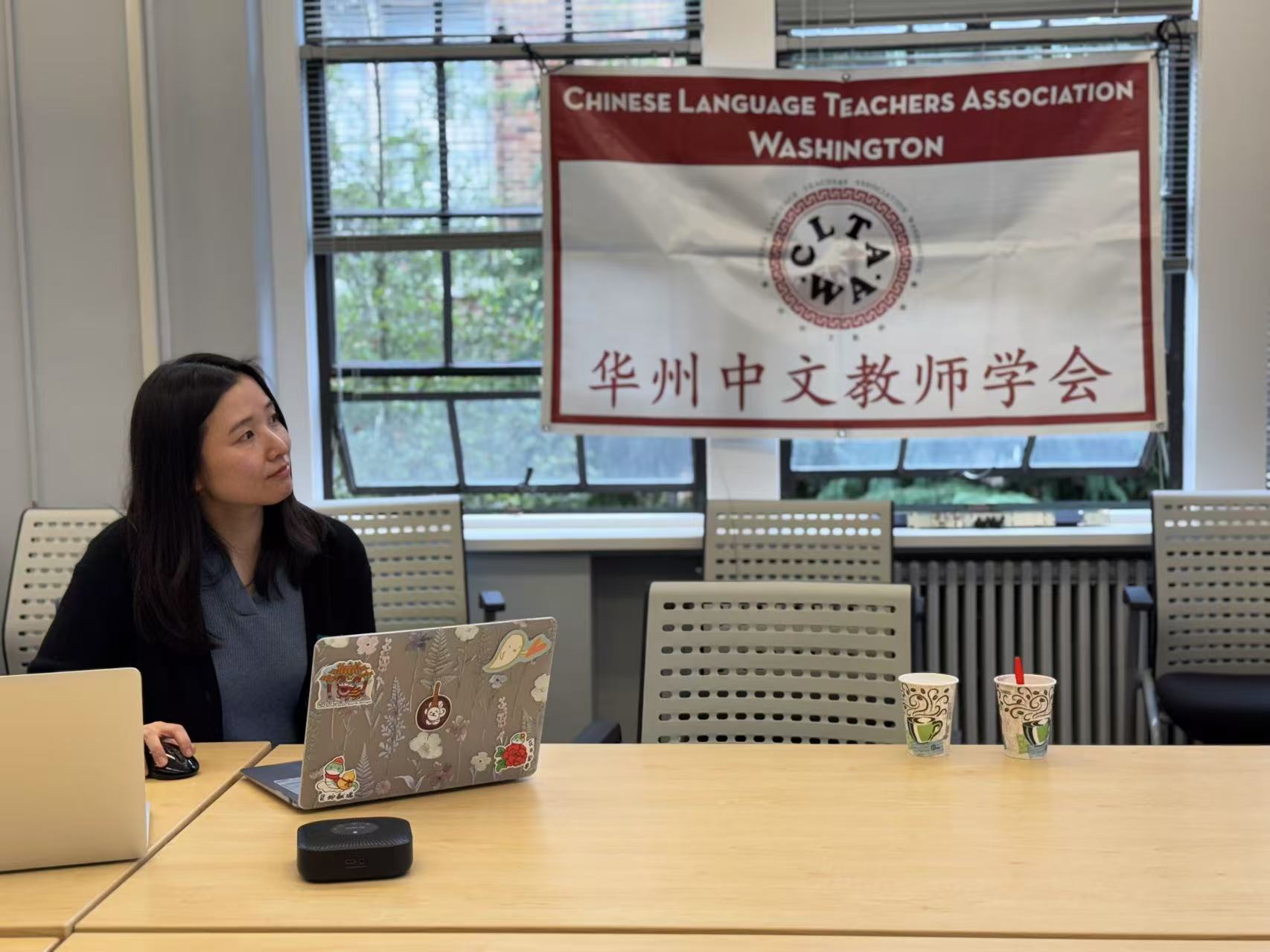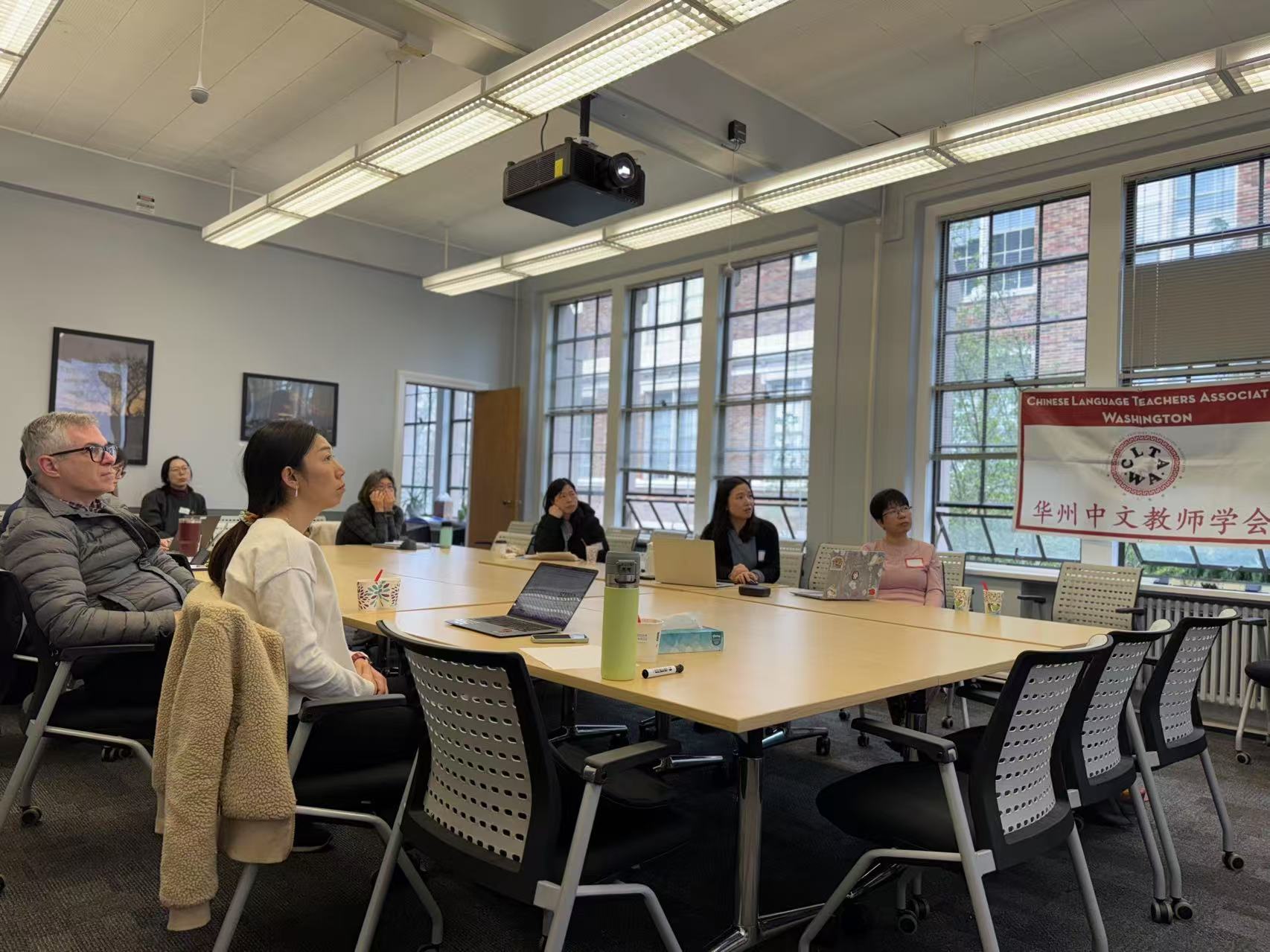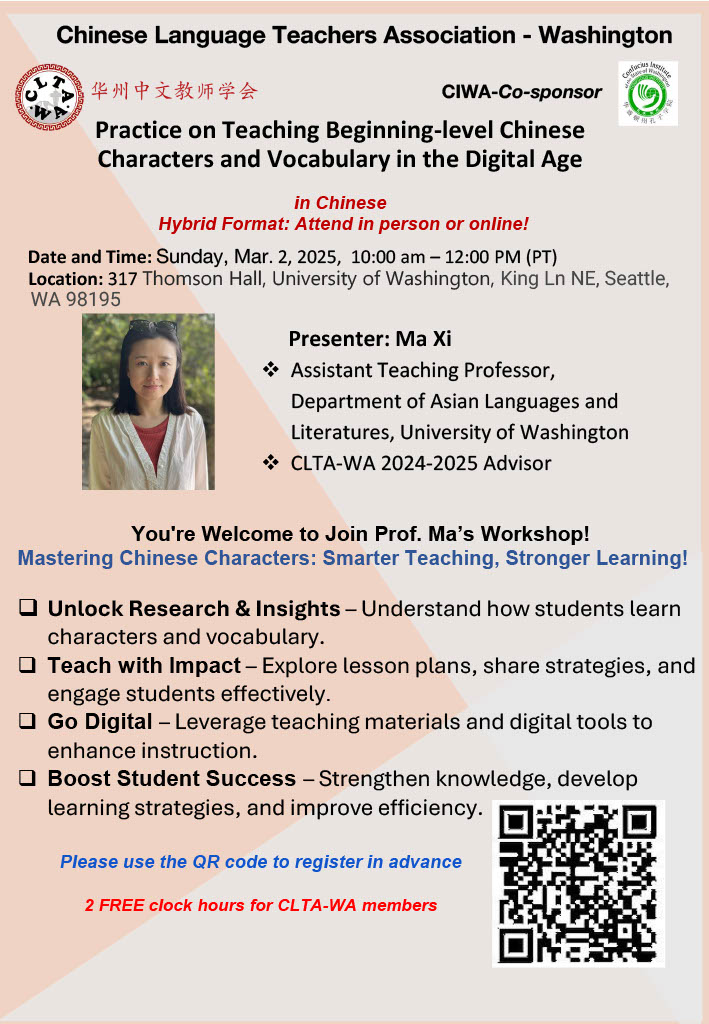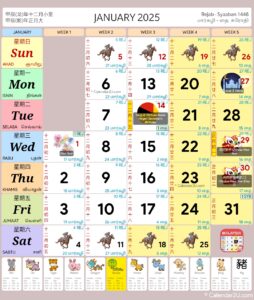By: Zhengying Liu (刘正瑛)
AI 时代投资当下、共探华裔身份认同活动纪实报道—— 记2026年华州美华历史月社区共建活动
美华历史月背景与活动缘起
Background of Chinese American History Month and the Origin of the Event
In 2023, Washington State officially passed SB5000, establishing January as Americans of Chinese Descent Month to commemorate, educate, and raise public awareness about the contributions and experiences of Chinese Americans in the state. The bill also encourages schools to conduct related educational activities to promote respect, understanding, and historical continuity. Building on two years of community-driven programs exploring Chinese American history and identity, an online event was held on January 18, 2026. Centered on understanding Chinese American history, confronting present-day challenges, and envisioning future opportunities, the event brought renewed contemporary significance to the third year of this statewide initiative.
2023 年,华盛顿州正式签署 SB5000 法案,将每年一月设立为“美华历史月”,以纪念、教育并提升公众对华裔美国人在州历史中所作贡献与所遭遇挑战的认识。该法案也鼓励学校开展相关教育活动,促进尊重、理解与历史传承。延续前两年由向心力教育联合多方组织推动的美华历史与身份认同探索交流活动,2026 年 1 月 18 日上午,一场聚焦共同学习美华历史、直面当下挑战、展望未来机遇的线上分享与头脑风暴顺利举行,为第三年的美华历史月注入了新的时代意义。


活动策划与跨世代嘉宾阵容
Event Planning and Intergenerational Speaker Lineup
本次活动由向心力海外文化使者项目(Centrigrowth Culture Ambassador Lab)创始人王晔(Cheryl Wang)老师联合华州中文教师学会(CLTA-WA)共同策划,并由多州多领域组织协办。王老师在开场介绍了美华历史月的设立背景、推动者的努力及SB 5574、SB 5134等法案的最新进展,并邀请老中青三代华裔代表展开深度对谈。嘉宾横跨不同世代与领域,包括长期投身海外华人权益与语言文化教育的资深前辈 Betty Lau 老师、从海外软件行业领袖转向教育人的周沫老师,以及新生代青年代表 Jasmine Zhu、Aolin Xu、Leo Chen,充分展现跨世代传承与共同前行的力量。
The event was co-organized by Cheryl Wang, founder of the Centrigrowth Culture Ambassador Lab, together with the Chinese Language Teachers Association in Washington State (CLTA-WA) , and supported by organizations across multiple states and sectors. In her opening remarks, Cheryl introduced the origins of Chinese American History Month, the advocates behind the legislation, and recent approving progress of the related bills, such as SB 5574 & SB 5134, etc. She then invited representatives from three generations of Chinese Americans to engage in a deep dialogue. The speakers—ranging from veteran educator Betty Lau, a long‑time advocate for Chinese American rights and Chinese language and cultural education, to a former tech industry leader turned educator Mo Zhou, to young leaders Jasmine Zhu, Aolin Xu, and Leo Chen—embodied the power of intergenerational continuity and collective progress.


跨世代故事:从历史伤痕到当下行动
Intergenerational Stories: From Historical Wounds to Present Action
两个多小时的分享中,从一同观看《纽约客》执行主编Micheal Luo罗明瀚的亲历分享,了解他2025年最新出版的《在他乡:排斥、归属与美国华人的传奇历程》一书开始,嘉宾们以自身经历为起点,讲述在美成长的真实故事、对身份认同的探索,以及为社区发展所做的努力。讨论聚焦华裔身份认同、社会参与、青年发展与社区未来,引发来自全美参与者的热烈回应。
Over the course of more than two hours, the event began with participants watching a personal account from The New Yorker’s Executive Editor Michael Luo and learning about his newly published 2025 book Strangers in the Land: Exclusion, Belonging, and the Epic Story of the Chinese in America. From there, the guest speakers drew on their own lived experiences to share authentic stories of growing up Chinese American, their journeys of identity exploration, and their contributions to community development. The discussion centered on Chinese American identity, civic engagement, youth development, and the future of the community, sparking enthusiastic responses from participants across the United States.

一、语言、文化与跨时代责任专访对话
Betty Lau 老师回忆近半个世纪前,自己被学校禁止在家讲中文的经历,并分享她用不熟练的台山话唤醒临终友人的故事,深刻提醒大家语言与文化传承的重要性,也强调为华裔发声、争取平等与互助是跨时代的责任。
Betty Lau: Language, Culture, and Cross‑Generational Responsibility
Betty Lau recalled being forbidden by her school nearly fifty years ago to speak Chinese at home. She also shared a moving story about using her imperfect Taishanese to awaken a dying friend, underscoring the profound importance of language and cultural preservation. She emphasized that speaking up for Chinese Americans and advocating for equality and mutual support is a responsibility that transcends generations.

Interviewee Betty Lau: Co-founder of Transit Equity All; community historian and longtime advocate for Chinese American rights and cultural education & Interviewer Cheryl Wang: Founder of Centrigrowth; teacher, mentor and coach
二、美华人物故事分享
故事分享(一) 从科技到教育,重建归属感
Mo Zhou: From Technology to Education, Rebuilding a Sense of Belonging
Mo Zhou 老师分享了从跨国软件工程师管理者转向教育人的心路历程。她不断追问“我是谁”、“我能创造什么价值”,最终选择投身教育,重建自己与学生的文化归属感,并为年轻一代打开更多接触 AI 应用的新可能。
Mo Zhou described her transition from an international software engineer manager to an educator. Driven by questions such as “Who am I?” and “What value can I create?”, she chose education as a path to rebuild cultural belonging for herself and her students, while opening new opportunities for young people to engage with AI in meaningful ways.

故事分享(二) AI 时代的批判思考与真实连结
Aolin Xu: Critical Thinking and Authentic Connection in the AI Era
Aolin Xu 则以学生、教育者与 AI 工程师的多重身份提醒大家在 AI 时代保持批判性思考,不让技术取代真实学习与人际连结,并指出移民家庭在数位时代面对错误资讯的挑战,呼吁脚踏实地、辨别真伪。
Speaking as a student, educator, and AI engineer, Aolin Xu urged the community to maintain critical thinking in the AI era, ensuring that technology does not replace authentic learning or human connection. She highlighted the challenges immigrant families face with misinformation and called for groundedness and discernment.

故事分享(三) 跨文化成长与社区行动的力量
Jasmine Zhu: Cross‑Cultural Upbringing and Community Action
Jasmine Zhu 以盖茨基金会项目协调员的视角,分享了跨文化成长如何塑造她的公益与社区行动。无论是在基金会推动公共健康议题,还是在西雅图组织麻将社群、读书会与文化活动,她都致力于连接不同世代与身份的人们,营造归属感,创造交流与连结的空间。
From her role as a program coordinator at the Gates Foundation, Jasmine Zhu shared how her cross‑cultural upbringing shapes her commitment to public service and community building. Whether advancing public health initiatives at the foundation or organizing mahjong gatherings, book clubs, and cultural events in Seattle, she works to connect people across generations and identities, fostering belonging and meaningful exchange.

故事分享(四) 重新定义成功,主动创造未来
Leo Chen: Redefining Success and Taking Action
Leo Chen 以新生代大学生的视角,探讨“成功”的多元定义,并分享在专业选择、求职规划与身份认同上的观察。他鼓励美籍华裔学生跳脱传统框架,直面困惑、拥抱不确定性,将身份认同化为行动——无论是跨文化项目、内容创作或社群连结,都能为青年打开新的可能。他强调,成长来自探索与贡献,而非被动遵循剧本;未来需要大家主动行动与共同创造。
Speaking from the perspective of a new‑generation college student, Leo Chen explored the diverse meanings of “success” and reflected on major selection, career planning, and identity. He encouraged Chinese American youth to move beyond traditional expectations, face uncertainty with courage, and turn identity into action—through cross‑cultural projects, creative work, or community engagement. Growth, he emphasized, comes from exploration and contribution, not passive conformity. The future, he noted, is something we build together.




三、社区回响:行动正在发生,未来由我们共同书写
Community Response: Action Is Underway, and the Future Is Ours to Write
在嘉宾圆桌与问答互动中,多位老师、家长与社区成员分享了带孩子回中国探亲、制作与品尝传统美食、在海外体验年节时令以及学习美华历史等经验。这些经历帮助孩子建立身份认同、理解文化根源,也促进跨文化与跨代沟通。
During the roundtable and Q&A, teachers, parents, and community members shared experiences such as taking children to visit family in China, preparing traditional foods, celebrating cultural holidays abroad, and learning Chinese American history. These moments help young people build identity, understand their heritage, and strengthen cross‑cultural and intergenerational connections.
有语言老师感慨,贴近学习者真实需求、关注身份认同的中文教育在北美影响深远,需要每位教师与家长共同投入。这样的教育不仅帮助孩子认识自我,也凝聚族群情感。亦有非华裔中文教师表达对华裔历史与文化的尊重与好奇,并希望贡献更多力量。
Language teachers highlighted the deep impact of culturally grounded Chinese education in North America, noting that meeting learners’ real needs and supporting identity exploration requires shared commitment from both educators and parents. Such efforts not only help children understand themselves but also strengthen community bonds. Non‑heritage Chinese‑language teachers likewise expressed respect and curiosity toward Chinese American history and culture, hoping to contribute even more.
大家一致认为,这场活动深化了对美华历史月的理解,为社区搭建了开放的对话平台,激励更多人参与、行动与发声。活动结束时,参与者纷纷表示意犹未尽,并建议未来持续举办类似分享与论坛,推动跨世代合作与支持。
Participants agreed that the event deepened understanding of Chinese American History Month and created an open platform for dialogue. Many expressed enthusiasm for continued gatherings and encouraged ongoing cross‑generational collaboration.
结语:美华历史不是过去式,而是进行式并憧憬未来
Conclusion: Chinese American History Is Not Past Tense — It Is Being Written Now and Looking Forward to the Future
在海外传承中华文化与融入美国社会的过程中,在美华人正以行动回应时代的挑战与机遇。美华历史月不仅是纪念过去,更是号召大家行动起来,共同创造未来的美华历史。
As Chinese Americans continue to preserve cultural heritage while engaging fully in American society, they are actively responding to the challenges and opportunities of our time. Chinese American History Month is not only a commemoration of the past but a call to collective action.
跨世代的声音、跨领域的参与、跨文化的连结,正汇聚成一股向前的力量,引领社区迈向更加多元、包容而充满希望的未来。
Voices across generations, participation across fields, and connections across cultures are converging into a forward‑moving force—guiding the community toward a more diverse, inclusive, and hopeful future.
Feedback from the Event Participants
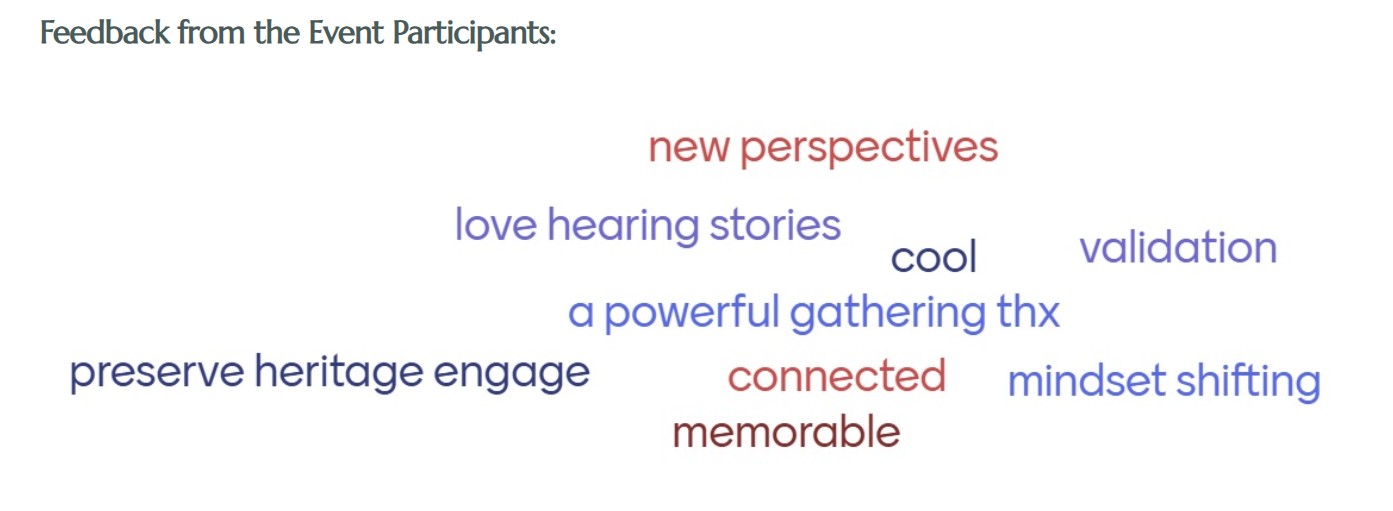
“Thank you to the organizers for creating such a meaningful Chinese American Celebration. The program was thoughtfully guided from start to finish, offering a space that felt welcoming, respectful, and truly community-centered.
I’m deeply grateful to all the speakers for sharing their insights and lived experiences. Hearing perspectives across generations made the stories especially powerful—rooted in history, shaped by resilience, and full of hope for what comes next. It was a reminder that preserving our community’s stories strengthens identity, purpose, and possibility for our youth.
I left feeling inspired and optimistic about the future. Thank you again to the speakers, volunteers, and organizers for bringing people together with such care. I’m grateful to have been part of it and look forward to supporting more events like this.”
— Cloe, A Parent from Skyline High School and Past President of Issaquah Schools Foundation
“I was deeply moved by Teacher Betty’s childhood story about learning language. Growing up in a time far less accepting of diversity, it was the persistence of generations fighting for identity and fairness that created the open and inclusive environment we benefit from today. Her reminder that “language is a tool” felt especially meaningful to me as a current language learner—mastering a tool is ultimately about serving our lives and contributing to society.
I also strongly resonated with the second teacher’s practice of taking her children back to China each year to maintain their interest in Chinese culture and their familiarity with the language. In addition, Leo’s reflections on how young people choose majors and careers gave me much to think about, especially the balance between personal interests and economic practicality.
In the past, “identity” felt like an abstract concept. But after hearing the speakers’ heartfelt stories, I realized that identity shapes every part of our lives and influences all of our decisions, big and small. I am truly grateful for this enlightening exchange.”
— Lisa, A Parent of two Teens
“Thank you so much for inviting me to be part of this event. Hearing so many different speakers share their personal stories and perspectives was incredibly meaningful. Each story and lived experience became a deeply powerful reminder for me of how complex and impactful language really is.
Language is not just about communication — it plays a crucial role in how we understand our identity, where we come from, and how our culture is carried forward. In a diverse community like ours, the way stories are told, shared, and taught truly matters.
This experience really reminded me how important cultural education and language-based storytelling are in helping us connect with one another and better understand both our communities and ourselves.”
— Jenny Ma, A Community Friend
“I truly appreciated hearing everyone’s experiences today. As an American teaching Chinese, the stories shared—especially Betty’s experience of being banned from speaking Taishanese—were deeply moving. They reminded me how essential it is to keep telling our stories, honoring the past, and learning from one another.
Understanding these lived histories helps us better support our students and move forward together as a community. Thank you for such a meaningful event.”
— Nina Geller, A Non-heritage Chinese Teacher
“Thank you so much for organizing this meaningful event. I’m truly grateful for everyone’s dedication to the Chinese community in North America. Through Chinese language education, you are helping children discover who they are, strengthening their sense of identity, and bringing our community together to shape our shared history.
It’s inspiring to see so many Chinese teachers thriving not only in language education but across so many fields. It genuinely feels like we are growing together and writing history side by side.”
— E, A Participant of the Event
“My main observations: Lifelong learning is a journey of discovery and reflection. From the collaborative panel for Chinese American History Month, the storytellers were truly compelling.
Who would have imagined that a Chinese game like mahjong could become a cultural connector across ages, abilities, and communities? And that a college student could so eloquently describe the stages of discovering and exploring one’s cultural identity.”
— — Betty Lau, Co‑founder of Transit Equity for All (TEA), Educator and Community Volunteer
Reviewed and Edited by: Cheryl Wang

















